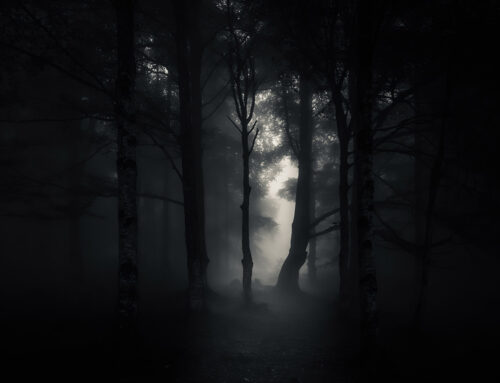
In the campy 1980 comedy, Caddyshack, disheveled groundskeeper Carl Spackler (played by a brilliant[...]

It's not often that a scientist becomes a subject for his own research; even[...]

Sensory deprivation via natural or manmade caves has now become, if not routine, certainly[...]

Using fMRI technology, scientists for the first time have revealed significant - albeit temporary[...]

The Mischievous Paradox Lurking Within Enlightenment
Read enough stories on the topic of spiritual awakening and you’ll discover a common vein running through all of them: the eradication of the one doing the seeking.
Spiritual awakening, writes David Carse, is letting go of “this constant propping up of the belief in yourself as a separate individual self, and in so doing to emerge from endarkenment.” In other words, we awaken from the dark into the light.
This idea of the seeker, the ego, the I awakening to the realization he or she never existed lies at the core of most mystical and religious traditions and, in particular, Advaita Vedanta, an ancient school of Hinduism based on the Upanishads.
“Happiness is your nature. It is not wrong to desire it. What is wrong is seeking it outside when it is inside.” – Sri Ramana Maharshi
In a nutshell, Advaita means non-dual or ‘one without a second,’ and vedanta a darshan or school of Indian philosophy.
The profundity of Advaita cannot be overstated. After all, if there is only One, there is no room for a you (or any of the other 8 billion who inhabit this planet). Nor, for that matter, is there room for trees or quarks, for koala bears or Twinkies. Advaita maintains there is simply oneness, God, Source, Allah, Yahweh, call it what you will. All else is an expression or manifestation of that Oneness.
Advaita Practices
One of the best-known proponents of Advaita was the 20th-century Indian mystic, Sri Ramana Maharshi, who maintained there were two main paths to awakening:
- Self-inquiry: Turning inward to find the one who is supposed doing the thinking, searching, etc.
- Surrender: Letting go of one’s life and allowing the power that is (call it God or Source or whatever you want) to do the work.
Ramana believed self-inquiry was the most ‘direct path,’ and he pointed to meditation and mindfulness practices as key ingredients to self-inquiry. The reason?
As we search for the seeker aka ourself, we keep coming up empty. It seems ridiculous to think that the one we seemingly know so well, the ‘me’ moving through this life, can’t be found. But don’t take our word for it, look for yourself.
“Why are you unhappy? Because 99.9 percent of everything you think and of everything you do is for yourself, and there isn’t one.” – Wei Wu Wei
These little nuggets can, in turn, be enough to sustain our search, to keep us moving forward, to seek more light, until in this lifetime or another (assuming there are others), we at last awaken to our True Nature.
The alternative: more of the material merry-go-round. Nothing wrong with it, mind you, but the thing about merry-go-rounds is you never really get anywhere.
In the absence of this self it is said only bliss or love remains. Gone are the mental machinations of a ‘me’ struggling through a thing called life. Gone, too, are the hangups and anxieties, fears and phobias. Death – and the birth that preceded it – are seen as imaginary bookmarks to an imaginary life.
In short, we become free.
Notice the paradox lurking in all of this? If the seeker never existed, who or what is doing the seeking and, similarly, who is it that awakens to this realization (who is the realizer)?
Happy seeking!





